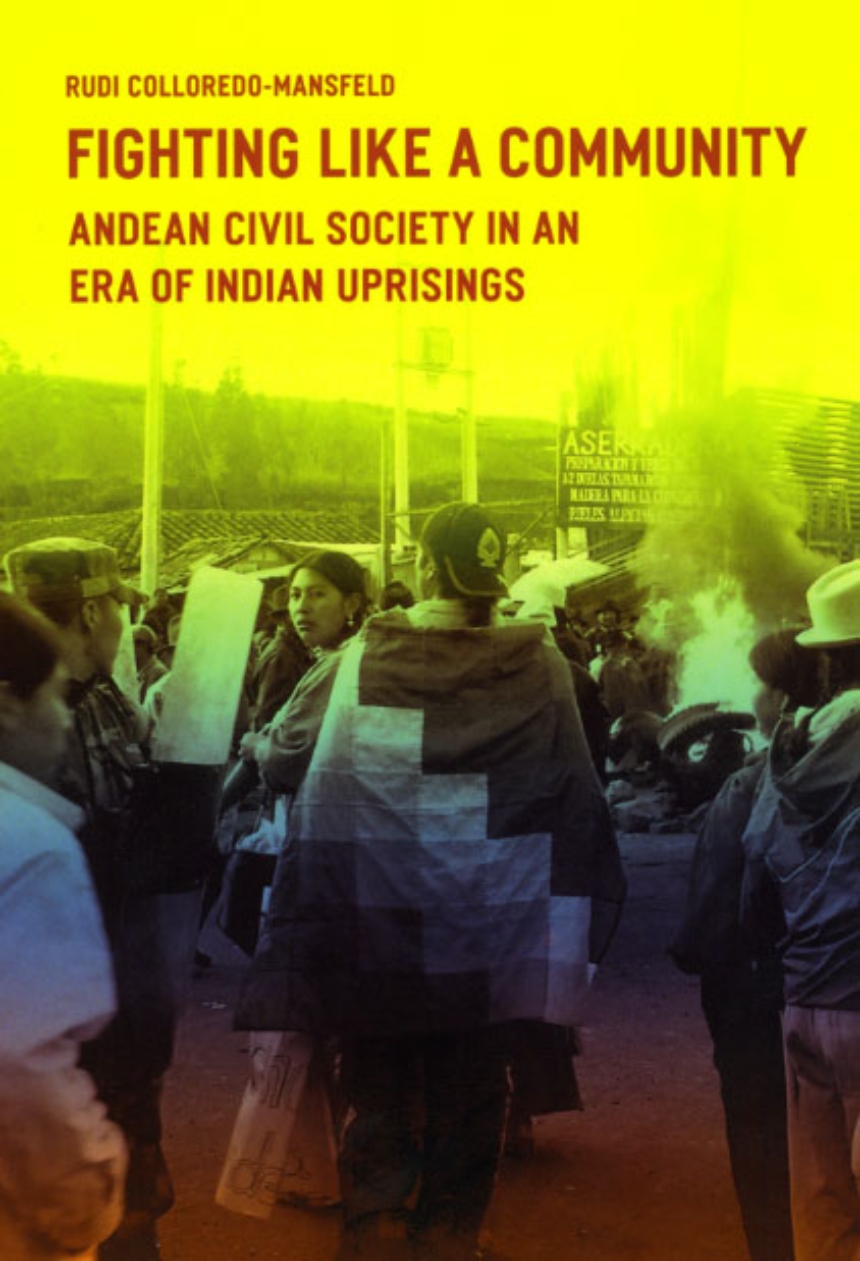Fighting Like a Community
Andean Civil Society in an Era of Indian Uprisings
Fighting Like a Community
Andean Civil Society in an Era of Indian Uprisings
The indigenous population of the Ecuadorian Andes made substantial political gains during the 1990s in the wake of a dynamic wave of local activism. The movement renegotiated land development laws, elected indigenous candidates to national office, and successfully fought for the constitutional redefinition of Ecuador as a nation of many cultures. Fighting Like a Community argues that these remarkable achievements paradoxically grew out of the deep differences—in language, class, education, and location—that began to divide native society in the 1960s.
Drawing on fifteen years of fieldwork, Rudi Colloredo-Mansfeld explores these differences and the conflicts they engendered in a variety of communities. From protestors confronting the military during a national strike to a migrant family fighting to get a relative released from prison, Colloredo-Mansfeld recounts dramatic events and private struggles alike to demonstrate how indigenous power in Ecuador is energized by disagreements over values and priorities, eloquently contending that the plurality of Andean communities, not their unity, has been the key to their political success.
256 pages | 20 halftones, 5 maps, 4 figures, 2 tables | 6 x 9 | © 2009
Anthropology: Cultural and Social Anthropology
Reviews
Table of Contents
List of Illustrations
Preface
Introduction: Communities and Movements
Part 1: Careers
1. The Artist (Don’t Forsake)
2. The Capitalist (Don’t be Backward)
3. The Activist (Don’t Suffer)
4. Uprising, 1990
Part 2: Communities
5. Projects and Lists (Don’t Shirk)
6. Justice, Jurisdiction, and Race (Don’t Steal)
7. Class and Councils (Don’t Be Lazy)
Part 3: Statecraft
8. Markets and Parks (Don’t Sell Out)
9. Cities and Kin (Don’t Lie)
10. Uprising, 26
Conclusion: Fighting Like a Community
References
